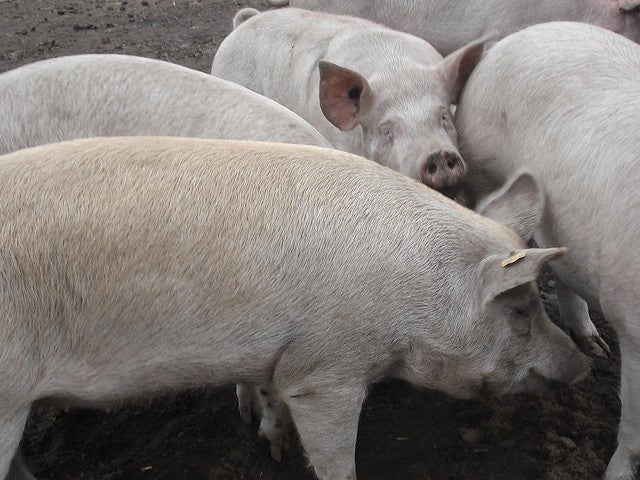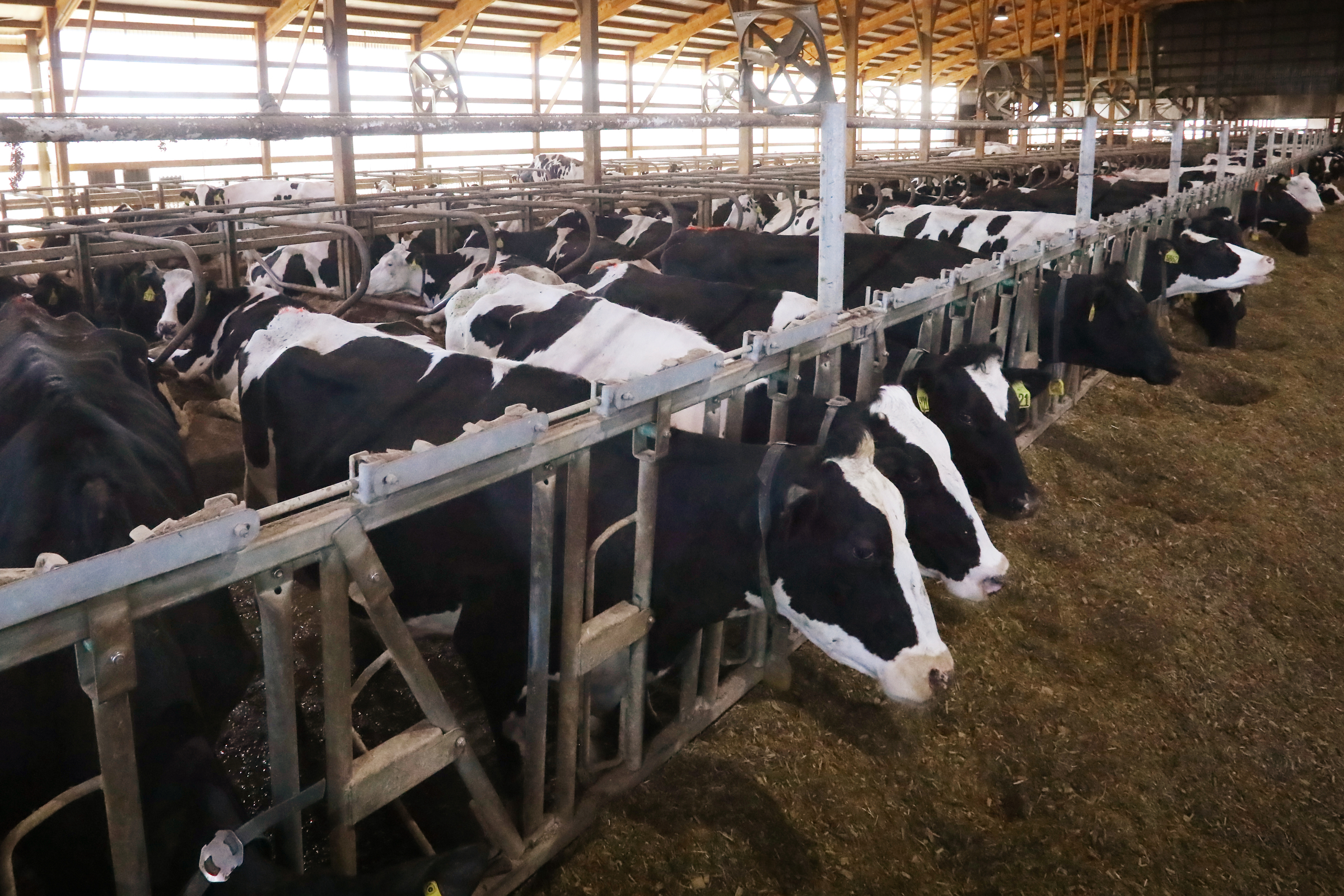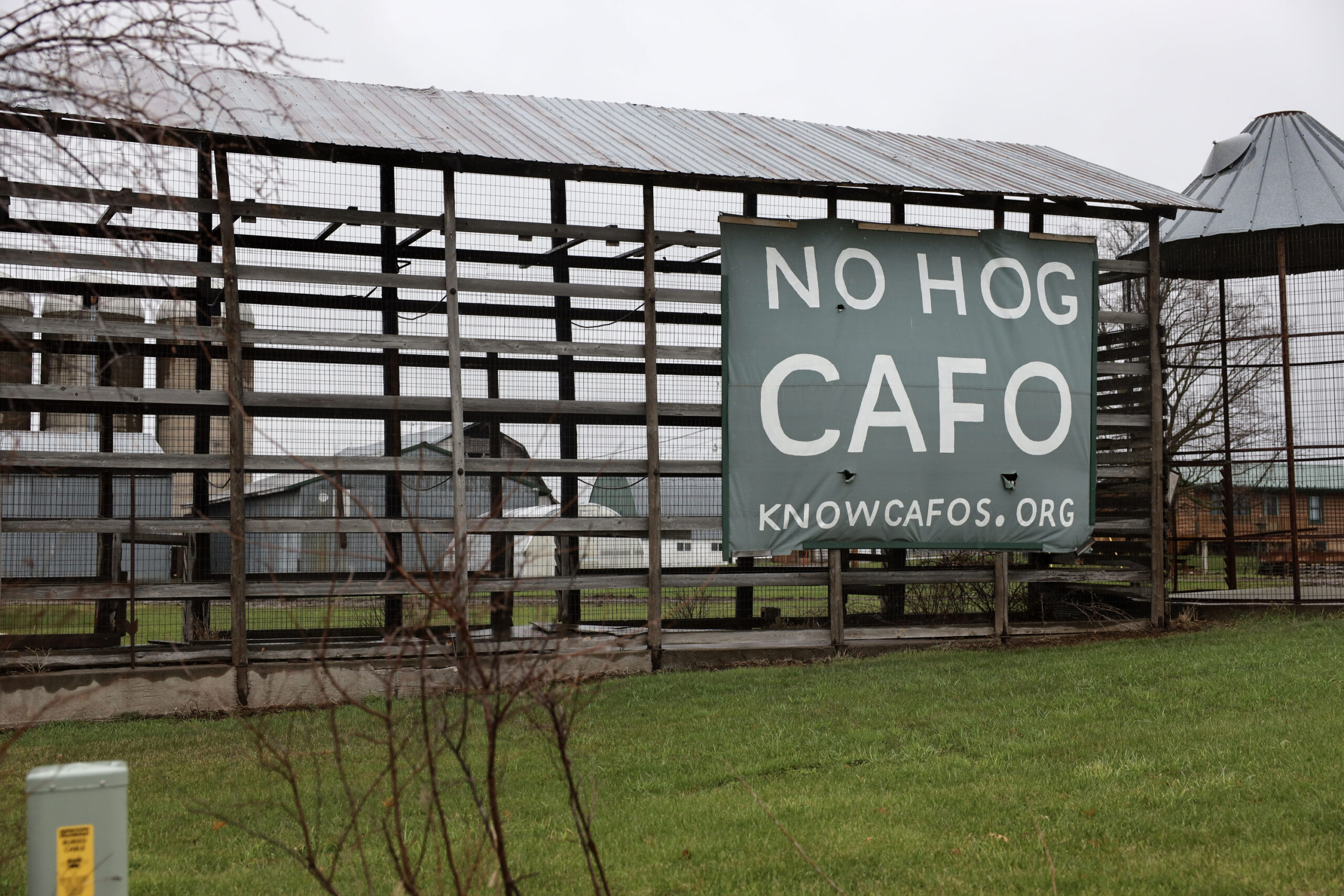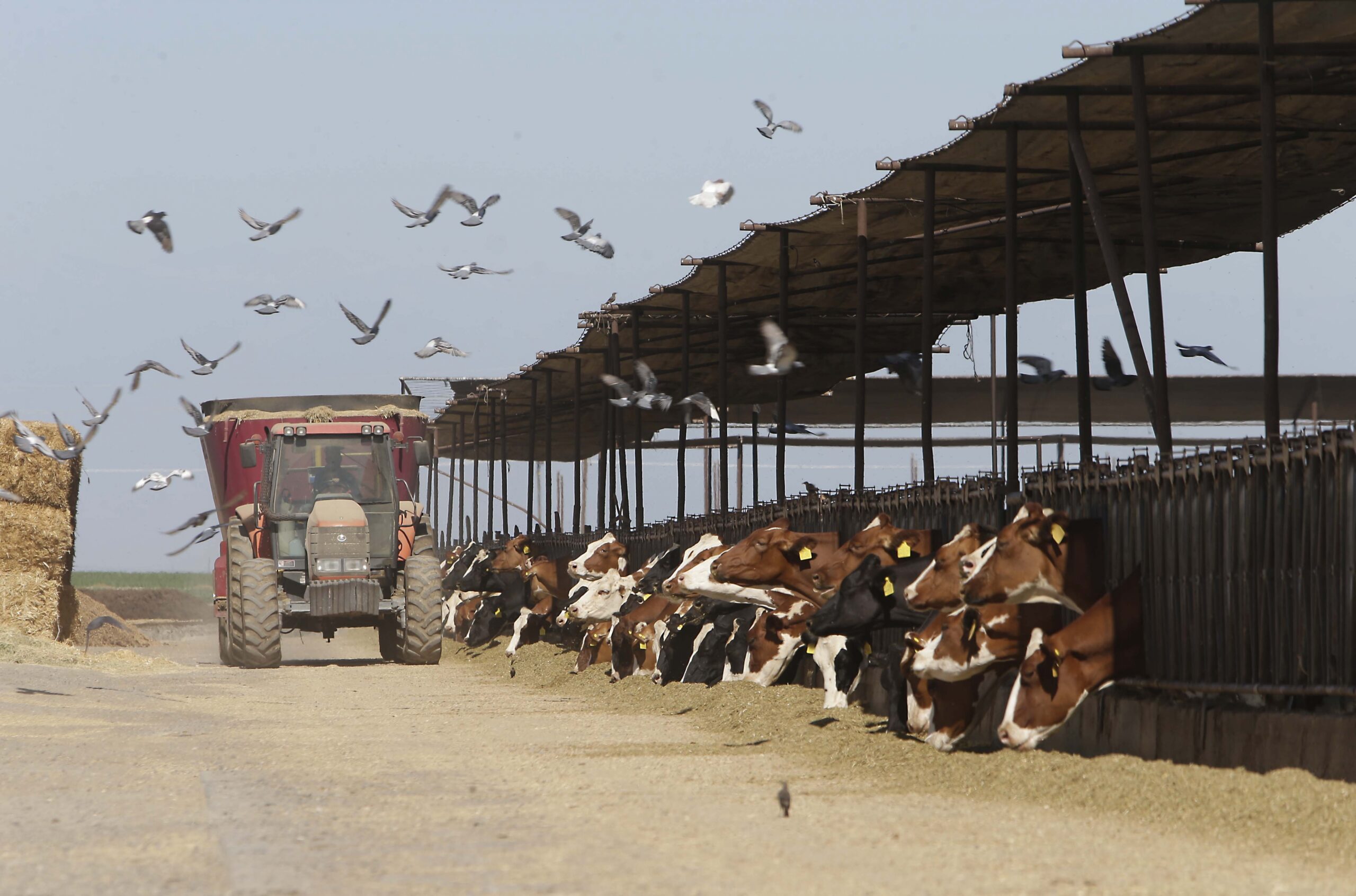Bayfield County is looking at the possibility of permitting its first large-scale farm or Concentrated Animal Feeding Operation.
Wisconsin has around 240 dairy CAFOs, which each have as many as 1,000 animals. Now, state and county officials say Iowa-based Reicks View Farms has shown interest in locating a large-scale hog farm near Lake Superior. No application has been received from the company yet, but Bayfield County Planning and Zoning Director Robert Schierman said the county is still looking at what oversight may be necessary.
He said it’s possible the county would “want to enact a manure storage ordinance or some siting language.”
Stay informed on the latest news
Sign up for WPR’s email newsletter.
Supporters of CAFOs say the operations increase production and profits for farmers, as well as quality of life for them and their animals. Opponents say the farms affect health and water quality. Matt Hudson, the watershed program coordinator with the Sigurd Olson Environmental Institute at Northland College in Ashland, said the biggest concern of any large-scale farm is the amount of nutrient runoff from soil or waste.
“Of concern with large-scale operations could be the antibiotics that are used in the process of raising the livestock and the pathogens that exist also in the waste,” said Hudson.
Hudson said too much runoff can lead to contaminated drinking water or cause algae blooms, which kill fish.
State law requires all CAFOs to have nutrient management plans that show how farms will control runoff. Ashland and Bayfield counties UW-Extension Ag Agent Jason Fischbach said small dairy farmers have been putting in more manure storage structures in the last five to six years to reduce runoff into streams.
Fischbach said he doesn’t want farmers thrown under the bus as the county considers large-scale farming.
“They are trying their best to do a good job to manage their nutrients,” he said, adding that “ultimately as farmers and eaters we have to work together because we depend on each other.”
The Wisconsin Department of Ag’s Steve Struss said that 61 out of 72 counties in the state have adopted manure storage ordinances.
“It gives some good environmental protection,” said Struss. “You don’t have a lot of manure storage up here, but as farms increase in size and spreading becomes an issue, storage is going to become more and more prevalent.”
Counties can decide where and how manure is stored. Struss said they can also look at road weight limits and review zoning laws for appropriate siting.
The Wisconsin Department of Natural Resources’ Doug Casina works with 28 large CAFOs in eight counties in central Wisconsin. Casina said large-scale farms need a water-quality permit to operate, and that other safeguards are in place to protect water.
“We have several areas of regulations from production-area discharges — limitations to discharges off of crop fields,” said Casina.
Casina said the agency also requires strict reporting, monitoring and maintenance, as well as regular inspections. Violations do occur, he said, but the operations are kept under a more watchful eye than small farms.
That’s not enough for area residents Sarah Martines and Charlie Ortman. They say they want more local control.
“Can that be something that can be worded in — that they get shut down if they don’t play by the rules?” asked Martines?
Said Ortman: “We want to have an actionable process that makes them stop (bad) behavior — period, no questions asked.”
Bayfield County Administrator Mark Abeles-Allison said the county is seeking input from more local residents. Citizens will have a chance to comment on CAFOs at a public meeting on Tuesday night.
Reicks View Farms did not immediately return a request for comment.
Wisconsin Public Radio, © Copyright 2024, Board of Regents of the University of Wisconsin System and Wisconsin Educational Communications Board.





